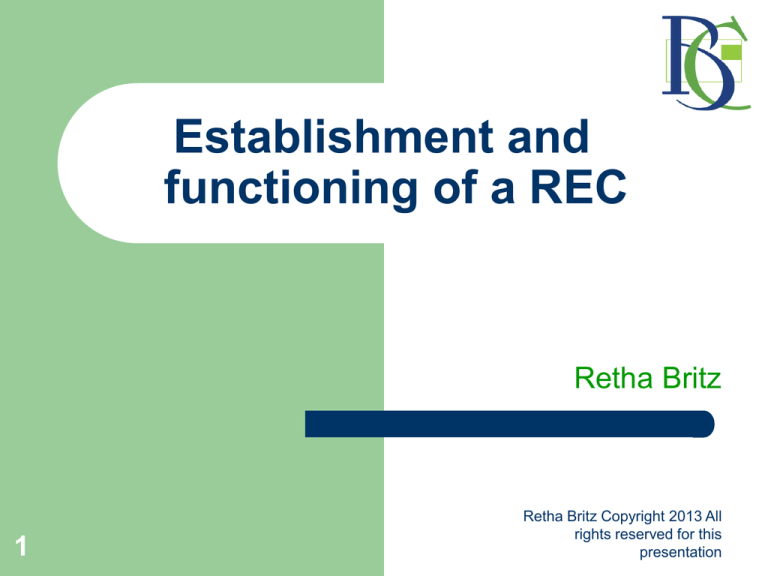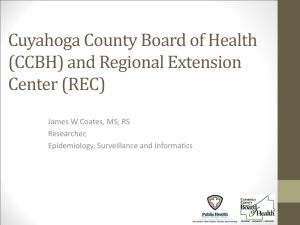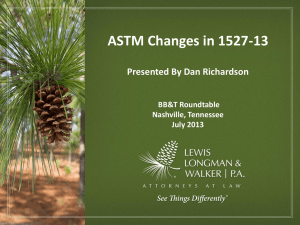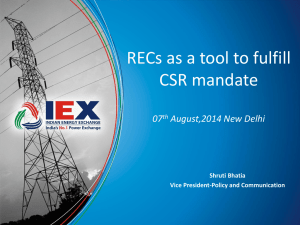
Establishment and
functioning of a REC
Retha Britz
1
Retha Britz Copyright 2013 All
rights reserved for this
presentation
Requirement for RECs:
Act No. 61 of 2003 National Health Act
Section 73 (1) “Every institution, health agency
and health establishment at which health
research is conducted, must establish or have
access to a health research ethics committee
registered with the National Health Research
Ethics Council (NHREC).”
2
Requirement for RECs: (continue)
Act No. 61 of 2003 National Health Act
(a)
(b)
3
Section 73 (2) “A health research ethics
committee must - ”
Review research proposals and protocols
“Grant approval for research by the relevant
institution, agency or establishment in
instances where research proposals and
protocol meet the ethical standards of that
health research ethics committee”
Requirement for RECs: (continue)
SA GCP section 8:
4
“Ethics are as important as scientific
considerations when reviewing a research
project. An independent SA based research
ethics committee must review the ethical and
scientific rigour of all clinical trials to be
conducted in SA. Institutions/organisations that
undertake research involving human pts should
ensure that there are adequate resources to
establish and maintain a REC”
RECs as per SA GCP (see pages 58 to 63)
1.
2.
3.
4.
5.
6.
7.
5
8.
Responsibilities
Ethics and legislation
Composition (also see ICH GCP 3.2)
Appointment of members
Procedures
Advocacy role and interpreters
Expedited reviews for maximal public
benefit
Records
RECs as per SA GCP (continue)
9. Monitoring
10. Complaints
11. Suspension or discontinuation of research
12. Disclosure of potential conflicts of interest
6
RECs as per the “Blue Book”
“An established REC must review and
approve all research proposals involving
human participants”
REC function (p. 15):
7
Protect the rights and welfare of research pts
Ensure adequate resources to establish and
maintain a REC
Terms of reference set out re the scope of
responsibilities, relationship to non-affiliate
researchers, accountability, mechanisms for
reporting and remuneration for members (if any)
RECs as per the “Blue Book” (continue)
REC function (p. 15):
8
The institution/organisation must accept legal
responsibility for decisions and advice received from
the REC and indemnify REC members
Researchers without affiliation to an
institution/organisation with a REC must ensure their
projects are approved by an established EC
“Blue Book” and SA GCP has the
same requirements in terms of:
9
Composition
Appointment of members
Procedures
Advocacy Role
Interpreters
Expedited Reviews for maximal public benefit
Monitoring
Complaints
Suspension/Discontinuation of research
What is different in the “Blue
Book”?
10
Recording of Decisions
Compliance Reports to the NHREC
Recording of Decisions
11
REC to maintain record of all research
protocols received and reviewed including:
Name of responsible institution/organisation
Project identification number
PI
Title of the project
Date of ethical approval or non-approval
Approval/non-approval of changes to the
protocol
Recording of Decisions (continue)
12
REC to maintain record of all research
protocols received and reviewed including:
Approval/non-approval of changes to PIL and
ICFs
Approval/non-approval of changes to
advertising materials, letters and notices
Complaints from researchers whose
protocols were not approved
Ts & Cs of approval of any protocol
Recording of Decisions (continue)
13
REC to maintain record of all research
protocols received and reviewed including:
Whether approval was by expedited review
Whether the opinion of another EC was
considered
Action taken by the EC to monitor the
conduct of the research
Recording of Decisions (continue)
For multi-centred research proposals, the EC
shall also record:
Details of other centres involved
The approval status of the study at each
centre
Details of any amendments required at other
centres
14
Recording of Decisions (continue)
15
On file should be:
Copy of the research protocol
Application submitted
Information sheets, ICFs
Relevant correspondence (in the form that it
was approved)
A list of committee members present during
the discussion of the applications and final
decision making
Compliance Reports to the NHREC
All REC to be registered with the NHREC
NHREC auditing activities of RECs to ensure
compliance with Blue Book requirements
Required information for audit purposes:
16
Membership and membership changes
Number of meetings held
Confirmation of participation by required categories of
members
Nr of protocols presented, approved and rejected
Monitoring and related problems
Complaints procedures and nr of complaints received and
handled
Other considerations
Secretariat (one full time administrative
officer) and physical office
Standard Operating Procedures (SOPs)
(See p 16 of Blue Book for required SOPs)
Website
Application Form
17
New research study
Amendment to already approved research
protocol
Annual review / progress report
Other considerations(continue)
Informed Consent Templates
Helpful tools
18
Main study Information Leaflet and Consent Form
Sub-study Information Leaflet and Consent Form
Checklist of required/submitted documents
Schedule of submission dates and REC meeting
dates
Guidelines for researchers
Other considerations(continue)
Training and Continuous Education of Members
19
Blue Book & SA GCP requires all members to have initial
and continued education in research ethics, GCP and
science
Chairperson and at least one other member to have indepth training in research ethics
Proof of training to be available
(e.g. certificates)
Sign and submit FWA in case of reviewing clinical
research
legal agreement between REC & US
government that REC will comply with Office for
Human Research Protection regulations and
standards
References
SOUTH AFRICA. Department of Health. Directorate: Health Systems, Research, Research
Coordination and Epidemiology. 2004. Ethics in health research: principles, structures and
processes. Research ethics guidelines. Pretoria: Government Printer. 67 p.
SOUTH AFRICA. Department of Health. Directorate: Health Systems, Research, Research
Coordination and Epidemiology. 2006. South African good clinical practice guidelines. 2nd ed.
Pretoria: Government Printer. 96 p.
SOUTH AFRICA. 2005b. National Health Act no. 61 of 2003. Government gazette, 469:194, 23 July 2004. (Regulation gazette no. 26595.)












